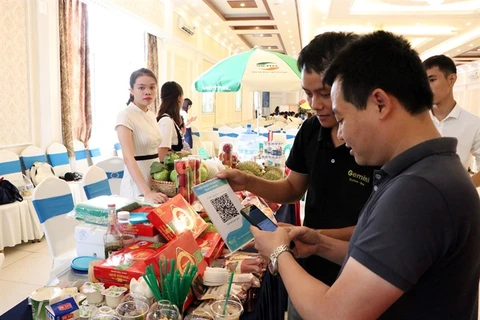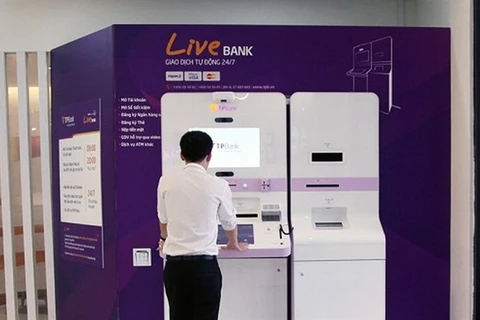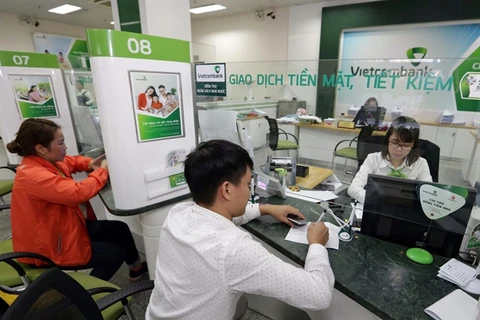 According to Vietcombank, 94 percent of banks in Vietnam are investing in digitisation and 42 percent of them consider digital baking a top priority. (Photo courtesy of HDBank)
According to Vietcombank, 94 percent of banks in Vietnam are investing in digitisation and 42 percent of them consider digital baking a top priority. (Photo courtesy of HDBank)HCM City (VNS/VNA) — Challenges related to network security, customer trust and an inadequate legal framework are road blocks to the digital transformation of Vietnamese banks, experts told a recent conference in HCM City.
Speaking at Vietnam Banking Conference: Digital Banking, Le Anh Dung, deputy head of the State Bank of Vietnam’s Payment Department, said, “In Vietnam, security risks such as fraud, customer fraud, network attacks on bank infrastructure, and user data leakage are rising.”
According to Ernst & Young Vietnam, 8,319 cyber attacks occurred on banks last year and 560,000 computers were affected by malwares capable of stealing bank account information.
Banks faced losses of 642 million USD caused by computer viruses, while only 52 percent of customers worried about security while using online banking.
Nguyen Hung Nguyen, deputy general director of National Payment Services Vietnam (NAPAS), said, “[The lack of] customer trust is also an obstacle in digital banking.”
He said 90 percent of payments for e-commerce transactions are done through cash-on-delivery because customers do not trust sellers and deliverers.
Nguyen Thi Thu Hang, director of Vietcombank’s e-banking services development department in HCM City, agreed with Nguyen about the preponderance of cash.
“Vietnamese have kept the habit of using cash for a long time. The habit of buying online is gradually forming but the common payment form is still COD.”
According to Vietcombank, 94 percent of banks in Vietnam are investing in digitisation and 42 percent of them consider digital baking a top priority.
Around 30 percent of the country’s population have a bank account and 70 percent have smart phones connected to the internet. However, only 20 percent of customers make online transactions.
Experts at the conference also focused on the lack of regulations governing digital services.
Hang noted the lack of legal framework for data sharing, storage and exploitation, while Nguyen said the Government should create a framework for a regulatory sandbox for applying new digital technologies.
He also called for drafting regulations for fintech to serve underbanked customers.
As for the legal framework, Dung said the Government should instruct relevant ministries and departments to create a national database on the population and allow opening, sharing and connecting with services such as banking, telecommunications and insurance.
The Government should create a legal framework for user data security and information security to create a safe and reliable digital transaction system, he added.-VNS/VNA
VNA























